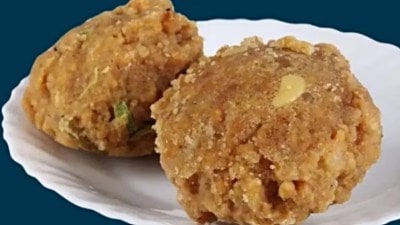‘Such a February face’: Ranking Shakespeare’s most savage insults
Forget playground taunts, when Shakespeare wanted to throw shade, he did it with a level of wit and viciousness that remains unmatched.
 From "cream-faced loon" to "fustilarian," explore 10 of Shakespeare's most masterful verbal takedowns. (Generated using AI)
From "cream-faced loon" to "fustilarian," explore 10 of Shakespeare's most masterful verbal takedowns. (Generated using AI) While the world rightly reveres William Shakespeare for his soul-stirring sonnets and timeless tragedies, this overlooks one of his most potent talents. In the heated crucible of Elizabethan England, where a wrong word could lead to a duel, language was both a shield and a sword, and Shakespeare wielded it with the precision of a master duelist. He understood that a truly great insult is a concise, character-assassinating portrait that exposes the very soul of its target. The Bard’s greatest takedowns are surgical strikes, laced with poetic imagery, invention, and psychological insight. To be insulted by Shakespeare is to be immortalised in your own failings. Here are ten of his most masterful verbal takedowns.
1. “A most notable coward, an infinite and endless liar, an hourly promise breaker, the owner of no one good quality.”
– All’s Well That Ends Well, Act 3, Scene 6 In All’s Well That Ends Well, the First Lord Dumaine delivers this methodical takedown of the braggart Parolles. It’s less a spontaneous outburst and more a forensic dissection of a man’s character, listing his flaws like charges in an indictment. The insult’s power lies in its cold, cumulative precision, systematically stripping Parolles of any honor while highlighting Bertram’s poor judgment for trusting him.
2. “Away, you starvelling, you elf-skin, you dried neat’s-tongue, bull’s-pizzle, you stock-fish!”
– Henry IV, Part 1, Act 2, Scene 4 In a classic tavern roast, Falstaff fires a volley of grotesque comparisons at the slender Prince Hal. Each term—from a shrunken “elf-skin” to a dried-up “stock-fish”—serves to caricature the Prince’s thinness as something desiccated and utterly unappetizing. It’s less a simple jibe and more a creative inventory of everything withered and lean, showcasing Shakespeare’s genius for turning a physical trait into a spectacularly inventive insult.
3. “I am pigeon-liver’d and lack gall.”
– Hamlet, Act 2, Scene 2 In a moment of intense self-reproach, Hamlet curses his own inaction. Believing pigeons lacked gall (the source of bile and bitterness), he brands himself devoid of the passion and courage needed for revenge. This self-directed insult transforms physiological folklore into a poignant metaphor for his paralysing introspection.
4. “Thou cream-faced loon.”
– Macbeth, Act 5, Scene 3 In Shakespeare’s Macbeth, a terrified messenger bears bad news to the tyrannical king, who instantly mocks his pale, fearful complexion with the blistering insult, “Thou cream-faced loon.” The phrase brands the man a cowardly fool (“loon”) made sickly-white (“cream-faced”) by fear, revealing more about Macbeth’s own desperate rage than the messenger’s appearance.
5. “Thou lump of foul deformity.”
– Richard III, Act 1, Scene 2 In a audacious scene from Richard III, Lady Anne hurls the insult “Thou lump of foul deformity” at the very man who murdered her husband and father-in-law. It is a raw, powerful condemnation that conflates Richard’s physical form with his monstrous character, branding him a mass of moral and physical corruption.
6. “Thou elvish-mark’d, abortive, rooting hog!”
Richard III, Act 1, Scene 3 This insult from Richard III taps into Elizabethan superstition. By calling Richard “elvish-mark’d,” Queen Margaret suggests his deformities are a malevolent fairy’s mark, branding him as evil from birth. She compounds this with “abortive” (unnaturally born) and “rooting hog” (a destructive boar), creating a powerful image of a fated villain.
 Procession of Characters from Shakespeare’s Plays by an unknown 19th-century artist. (Wikimedia Commons)
Procession of Characters from Shakespeare’s Plays by an unknown 19th-century artist. (Wikimedia Commons)
7. “Thou clay-brained guts, thou knotty-pated fool, thou whoreson obscene greasy tallow-catch!”
– Henry IV, Part 1, Act 2, Scene 4 Prince Hal unleashes a verbal fusillade on Falstaff, attacking him on every front. “Clay-brained” scorns his dull intellect, while “knotty-pated” brands him a blockheaded fool. The final blow, “whoreson obscene greasy tallow-catch,” viciously insults his bastardly character and greasy, unkempt physique in one ugly image.
8. “Your brain is as dry as the remainder biscuit after voyage.”
As You Like It, Act 2, Scene 7 In As You Like It, the melancholy Jacques dismisses a fool’s wit with this brilliantly dry observation. He compares the man’s mind to a ship’s biscuit that has survived a long journey, completely devoid of moisture, flavor, and vitality. It’s the ultimate burn for someone whose thoughts are stale, unoriginal, and profoundly uninteresting. Shakespeare perfectly captures intellectual bankruptcy through a simple, relatable image.
9. “You scullion! You rampallian! You fustilarian! I’ll tickle your catastrophe!”
Henry IV, Part 2, Act 2, Scene 1 In Henry IV, Part 2, Falstaff unleashes his fury on Mistress Quickly with a torrent of inventive vulgarity. He hurls archaic slurs—”scullion,” “rampallian,” “fustilarian”, each layering contempt for her low status and unrefined nature. The threat, “I’ll tickle your catastrophe,” is a characteristically crude pun, meaning he’ll physically assault her
10. “You have such a February face, so full of frost, of storm, and cloudiness.”
Henry IV, Part 1 From Much Ado About Nothing, this insult is a masterpiece of meteorological mockery. Don Pedro tells Benedick that his usually witty countenance has turned as cold, dark, and stormy as a February day. It’s a poetic yet cutting way to say someone’s face is a perfect portrait of gloom, forecasting nothing but sour moods and emotional frost.



- 01
- 02
- 03
- 04
- 05




























